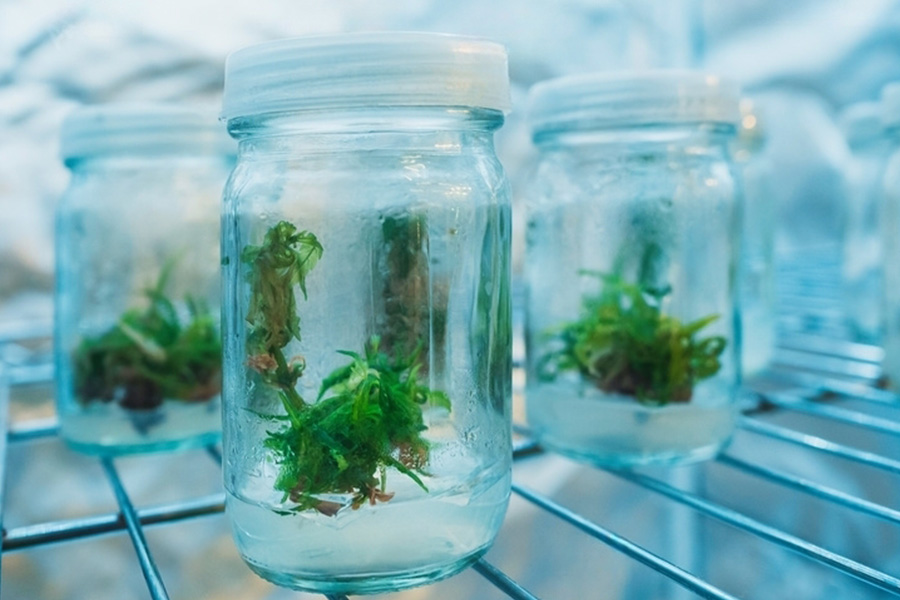The cannabis industry is constantly evolving, with new techniques and methods being developed to overcome challenges and enhance cultivation practices. One such emerging practice is tissue culture, also known as micropropagation.
What is Tissue Culture?
In this next section we’ll explain the process of tissue cultures using healthy cells. Tissue cultures involves the growth of plant tissues or cells in an artificial medium, separate from the parent plant. This technique uses a liquid, semi-solid, or solid growth medium like broth or agar. These mediums facilitate the growth and development of plant tissues. Remarkably, a single cell can regenerate an entire plant under the right conditions.
Benefits for Growers
A plant’s tissue culture offers two distinct value propositions for cannabis growers:
- Pest and Disease Control: One of the primary advantages of tissue culture is its potential to address pest and plant disease problems associated with traditional cloning methods. Unlike cloning from mother plants that may carry pests or diseases, this method allows for the production of clean and disease-free plant material. It is particularly beneficial for indoor and greenhouse growers where biosecurity is essential and the agroecosystem is less resilient.
- Regeneration of Old and Tired Mother Stock: Over time, cloned cannabis plants may lose vigor, performance, and consistency, impacting the quality of the crop. Tissue culture provides a solution by renewing old and tired mother stock of preferred clones, revitalizing their potential. Nurseries can send clones to specialized labs to be cleaned and renewed, or growers can directly order these clones, ensuring each plant comes from this process.
Applicability in Breeding
Tissue culture also offers exciting possibilities for cannabis breeders. It enables breeders to preserve and bank parent lines or breeding stock in disease-free form, keeping them ready for seed production when needed. This way, breeders can ensure the availability of disease-free and genetically stable plants for future breeding projects. However, it is essential to consider the cost and protect intellectual property when engaging third-party labs for tissue culture services to safeguard prized genetics.
Considerations for Outdoor Cultivation
While tissue culture presents numerous advantages, it may be considered a more superfluous technique for outdoor cultivation. The complexity and resilience of the natural environment in outdoor settings often mitigate the need for intensive biosecurity measures. Therefore, the said method may find its most significant applications in controlled indoor and greenhouse environments, where biosecurity plays a pivotal role.
